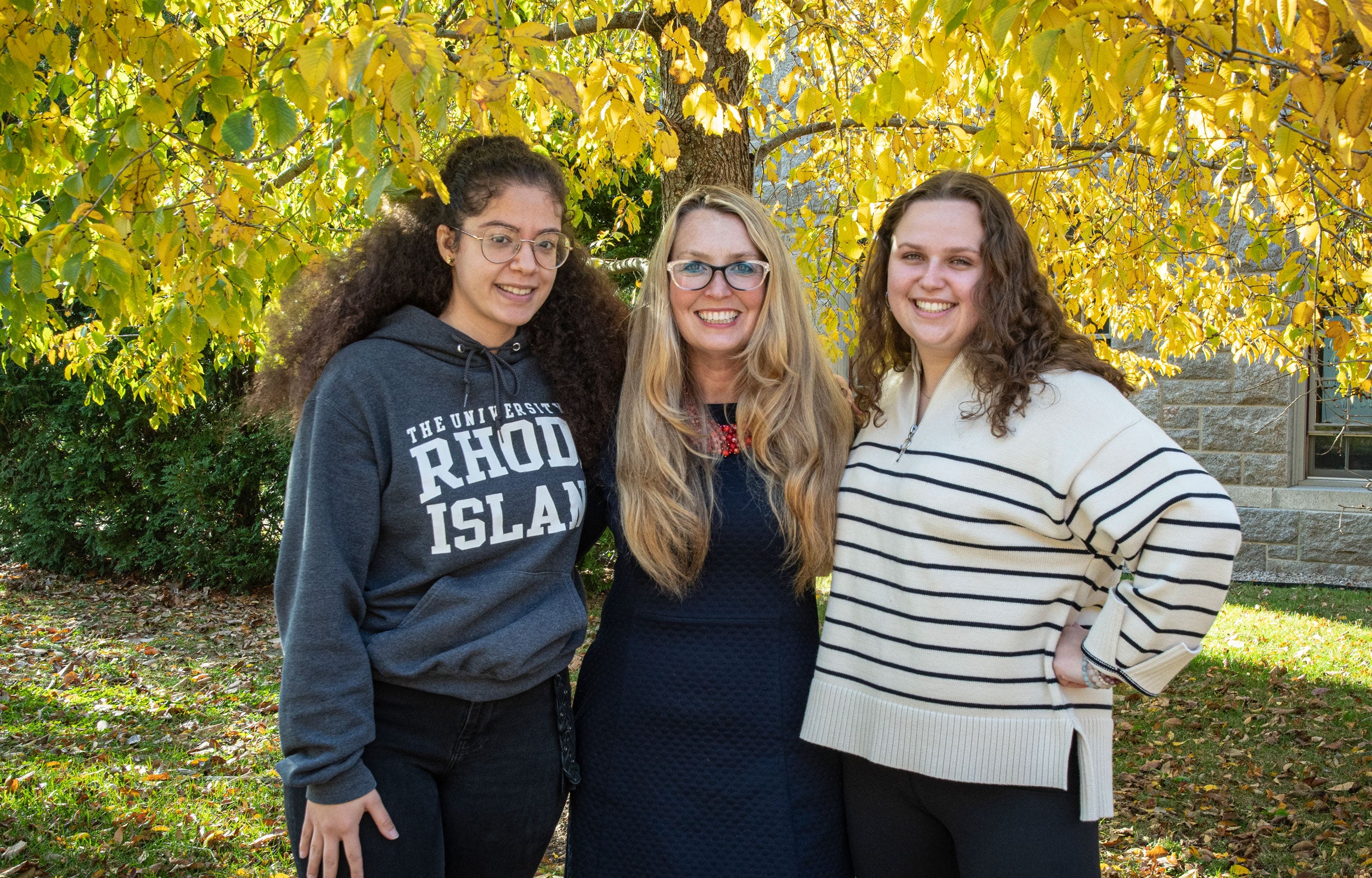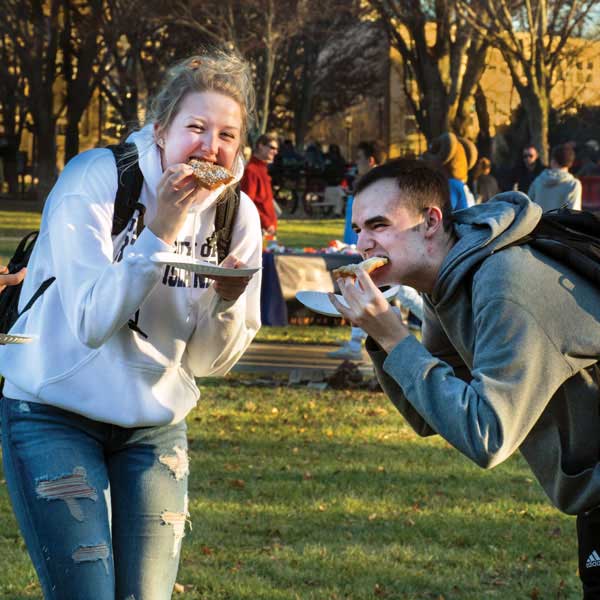
What biomedical engineering major and student mentor Raquel Lopes ’23 wants first-year students to understand about college is this: It’s going to be okay. Really.
Lopes is one of the 170 mentors involved in a one-credit seminar for first-year and transfer students called URI 101, an onboarding course which focuses on academic planning and transitioning to college. The student mentors are paired with faculty and staff instructors of the course and offer, among other things, a been-there-done-that peer perspective that complements the curriculum.
As a URI 101 mentor, Lopes’ priority is first-year students’ success, which extends from training them on the University’s digital learning system to choosing majors that map to their future career choices. “Helping students become more comfortable with everything URI has to offer is humbling,” Lopes says. “It not only shows me how far I’ve come but also reminds me of how stressful the first year of college can be.
“URI 101 is meant to be a judgment-free and stress-free place,” she continues. “Once students realize that the instructors and mentors like myself really just want to help them succeed, they begin to talk about issues they have and become more sociable in class.”
A top concern among first-year students is time management, mentors say. Many incoming URI students report being overwhelmed and worried about how they’ll get everything done.
The URI 101 program has its complement in the 3,000 colleges and institutions of higher education that, in the last 50 years, have used some variation on the theme to introduce students to their new college or university. An early adopter of the transition-to-college course model, the University runs between 140 and 150 sections of URI 101 each fall. More than 40,000 URI students have taken the course, now in its 26th year.
Setting a foundation for success
A one-credit, academic planning seminar for first-year and some transfer students, URI 101 sets the foundation for a student’s academic life, says Kim Stack, director of URI’s Center for Career and Experiential Learning, which runs the program. Most sections group students according to their major and are taught by staff or faculty who work within that discipline. If a student does not have a major, the instructors help them in their decision-making. URI 101 assists students in finding the right major through a four-step process that takes into consideration a student’s personality and skill set. And while the goal is to plan, define, and develop the skills that contribute to each individual student’s academic success in their major, URI 101 covers a broad range of topics, including self-care, campus life, and using technology tools.
And then there are the critical immeasurables. “We’re creating a space of caring. Caring that you’re eating, caring that you’re sleeping, caring that you’re happy. The mentors create that same sense of care,” Stack says.
At its core, URI 101 is about retention and student success. First-year and transfer students can be a vulnerable population. Any number of situations, small and large, can undermine a student’s academic and social success. Roommate conflicts, difficulty making friends, even filling out a class schedule can hinder success. Mentor Gillian Stone ’23, a human development and family science major, wants first-year students to understand that there is help available for any situation that arises.
“We offer academic, mental, and emotional support,” Stone says. “URI shows students that college doesn’t have to be that intimidating. It creates an environment where students can feel comfortable transitioning into a new home while learning about tips to help them throughout their time at URI.”
—Marybeth Reilly-McGreen

